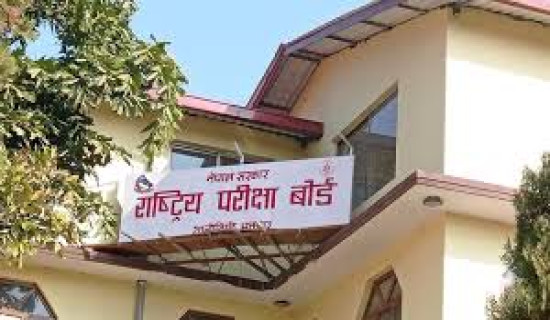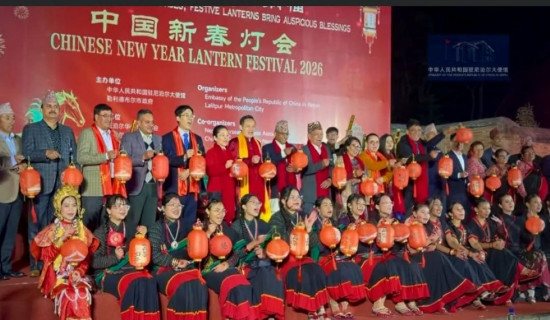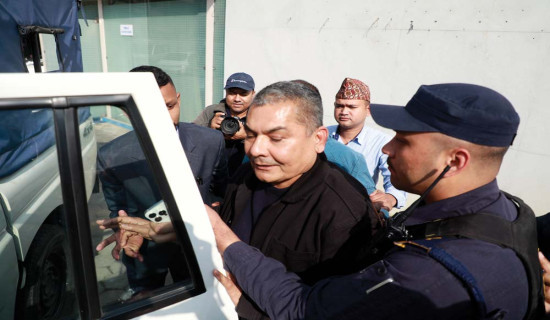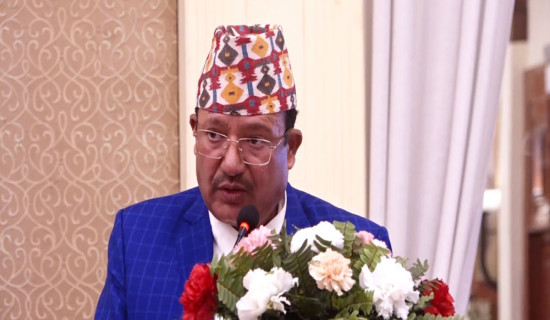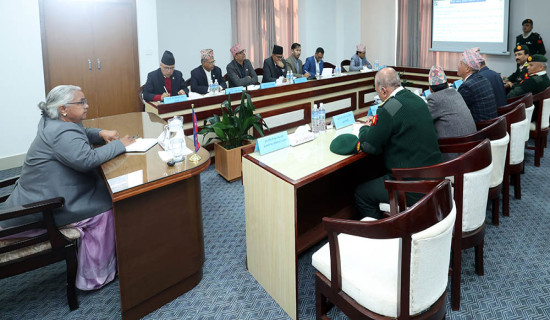- Wednesday, 18 February 2026
Newspaper Endorsements
Can They Swing The Elections?
Would a pre-election editorial endorsement by The Washington Post newspaper have made Kamala Harris victorious for the US presidency? Post’s owner Jeff Bezos instantly argued, in an op-ed piece, that the practice of extending endorsement has been done away with because chances of voters changing their mind on the basis of what they’ve read in the paper they subscribe to was minimal. He contended that the decision was taken “to safeguard independent reporting.” That might very well be so. But not all of the Post readers were convinced as no fewer than two hundred thousand digital subscribers cancelled their subscriptions within 48 hours.
The election result declared on 6th November showed that Donald Trump was the winner —with a remarkable mandate. Bezos was vindicated. And so was Patrick Soon-Shiong who owns the Los Angeles Times. He, like Bezos, had earlier ‘overruled the paper’s editorial decision to endorse Harris.’ USA Today, another newspaper title of repute, too had opted for a non-endorsement. But the story doesn’t end there.
The Economist’s endorsement
The Economist, Britain’s weekly newspaper with a sizable audience in the US and beyond, chose to offer its endorsement to Kamala Harris. “If The Economist had a vote in the 2024 election, we would cast it for Kamala Harris,” was how precisely the paper made its selection. The paper gave reasons, concentrating mainly on two aspects: that Ms. Harris was a centrist politician; and more importantly, the paper said, re-election of Donald Trump would come with “unacceptable risks” for America and as well as for the rest of the world. It's US editor, John Prideaux, gave an elaborate explanation.
Another British paper, The Guardian, opposed Trump’s candidature editorially because of his incoherent policies and behaviour during his first term in the White House (2017-21). Back in the US, The New York Times’s editorial board approved Harris’s candidature in the write-up headlined “Vote To End The Trump Era”. The New York Post, owned by another billionaire Rupert Murdoch, favoured Trump.
Alluding to the position taken by the Post and LA Times, Betsy Reed, The Guardian’s US editor swiftly reacted in the following way: “Something these two papers have in common? They both have billionaire owners who could face retaliation in a Trump presidency.” She reiterated The Guardian’s consistent stand to remain “accountable only to you, our readers,” in a fiery letter she addressed to the Guardian audience. (I am one of the recipients.)
The Post’s non-endorsement attracted stinging criticisms not only from angry readers but also from leading media figures including one of its former editors, Marty Baron: “This is cowardice, with democracy as its casualty.” Baron’s comment on X / Twitter implied the Post gave in to the intimidation from the Republican camp. Bob Woodward and Carl Bernstein shared a statement that billed the Post’s decision as “surprising and disappointing.” Both Woodward and Bernstein worked under Post editor Ben Bradlee, who unearthed the Watergate scandal that led to the resignation of President Richard Nixon, in 1974. To some of the media-watchers, Post’s slogan, printed on the top of front page, Democracy Dies In Darkness, has become a palpable irony.
Contemporary media reports suggest that Bezos has substantial business contracts with the US administration, and Soon-Shiong has to promote his drug products that require approval from the Food and Drug Administration. In other words, they are misusing the media power for protecting and promoting their pecuniary interests. These billionaires are least bothered about the first two basic tenets of journalism: to inform and educate the people. In other words, the challenge to untangle the sinister nexus of media-owners with those in the state power is becoming formidable day by day.
Informing readers about contemporary events of public interest has always been the primary duty of newspapers (and other media outlets). But that has not been considered good enough. The readers also deserve additional service in the form of educated guidance. Essentially to help them make an informed choice. The practise of extending endorsement of a candidate in the US goes back to 1860 when the Chicago Tribune favoured the candidacy of Abraham Lincoln. Editorial endorsement has been tradition also in the newspapers published in the United Kingdom. The most recent example of endorsement was recorded earlier this year when two of the prominent British newspapers, The Sun and Sunday Times, offered their support to Labour party leader Keir Starmer – the present prime minister.
Echoing his employer’s view, CEO Will Lewis of the Post issued his statement supporting “our readers’ ability to make up their minds… (to take) decisions–whom to vote for next president.” But Lewis' perception is not shared widely. For example, Dominic Wring, professor of political communication at the UK’s Loughborough University, is of the view that newspaper endorsements continue to play a prominent role in shaping public opinion.” It’s not that the media tells us what to think, but they indicate what we should think about,” Aljazeera has quoted him as saying. Needless to emphasise, institutional endorsements are far weightier than individual backing.
Informed choice
In Nepal, it is not customary for newspapers (and other media organisations) to publicly extend pre-election endorsement to contesting candidates — neither for presidents nor prime ministers. Ideological manifesto of contesting political parties, their stand on various contemporary issues affecting voters are scrutinised in editorial columns along with erudite conclusions. Obviously, such writings are expected to help potential voters to make an informed choice.
However, this is possible only in a healthy political environment. In the absence of a congenial situation, elections and processes thereof are bound to be corrupted, ultimately reducing their reliability. What this country has seen—and endured — since 1990 is an experiment of multiparty democracy where competing political parties have goaded the media towards partisan lines. "Party media have incestuous relationships as they compromise professionalism,” says Professor P. Kharel in his book “Media for Participatory Democracy”, published in 2012.
In any case, editorial opinions printed on the pages/sections /segments specifically allocated for that purpose in professionally-run media outlets are generally seen to be doing well. Meanwhile, Nepali journalists are clearly encouraged by their seniors to distinguish news from the views —avoid writing opinionated stories in the disguise of independent reporting. Or else one should be prepared to lose credibility lock, stock and barrel.
(Adhikary is a journalist active since 1978 and writes on regional issues.) dhrubahari@gmail.com)










